-
Products
-
Solutions
-
Resources
-
Company
- Pricing
Products
Solutions
Resources
Company

Mobile apps are increasingly becoming the main way users interact with businesses — yet Android app security needs are often not considered until the end of the app development lifecycle.

To prevent;
Android mobile app protection techniques and APK security must be a focus at the beginning — and throughout — the app development lifecycle.

APK (Android Package Kit) security is key to Android app protection. APK security focuses on safeguarding the app package from tampering and cyber threats, by verifying the app’s integrity, securing data transmission, and using advanced analysis tools to find and address vulnerabilities. This helps to prevent unauthorized modifications and reduce the risk of malicious behaviors on Android apps.
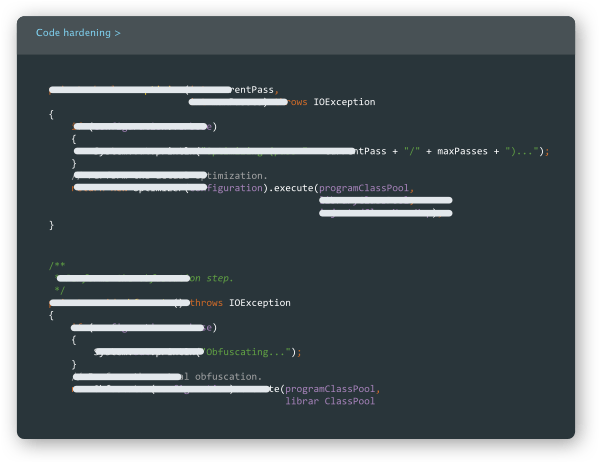
Android app code hardening serves as your mobile applications’ frontline defense against reverse engineering and tampering attempts.
Android mobile app code hardening techniques will render your code illegible without affecting its functionality, ensuring that threat actors who attempt to decompile your app won’t be able to
easily interpret its internal logic.
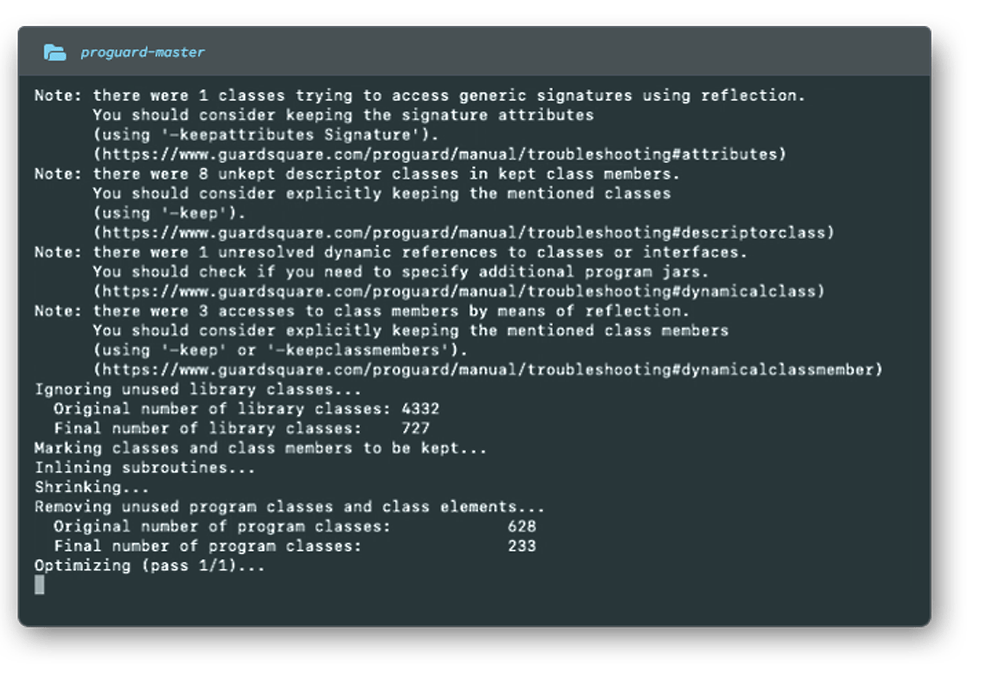
Utilizing Android code optimization helps remove;
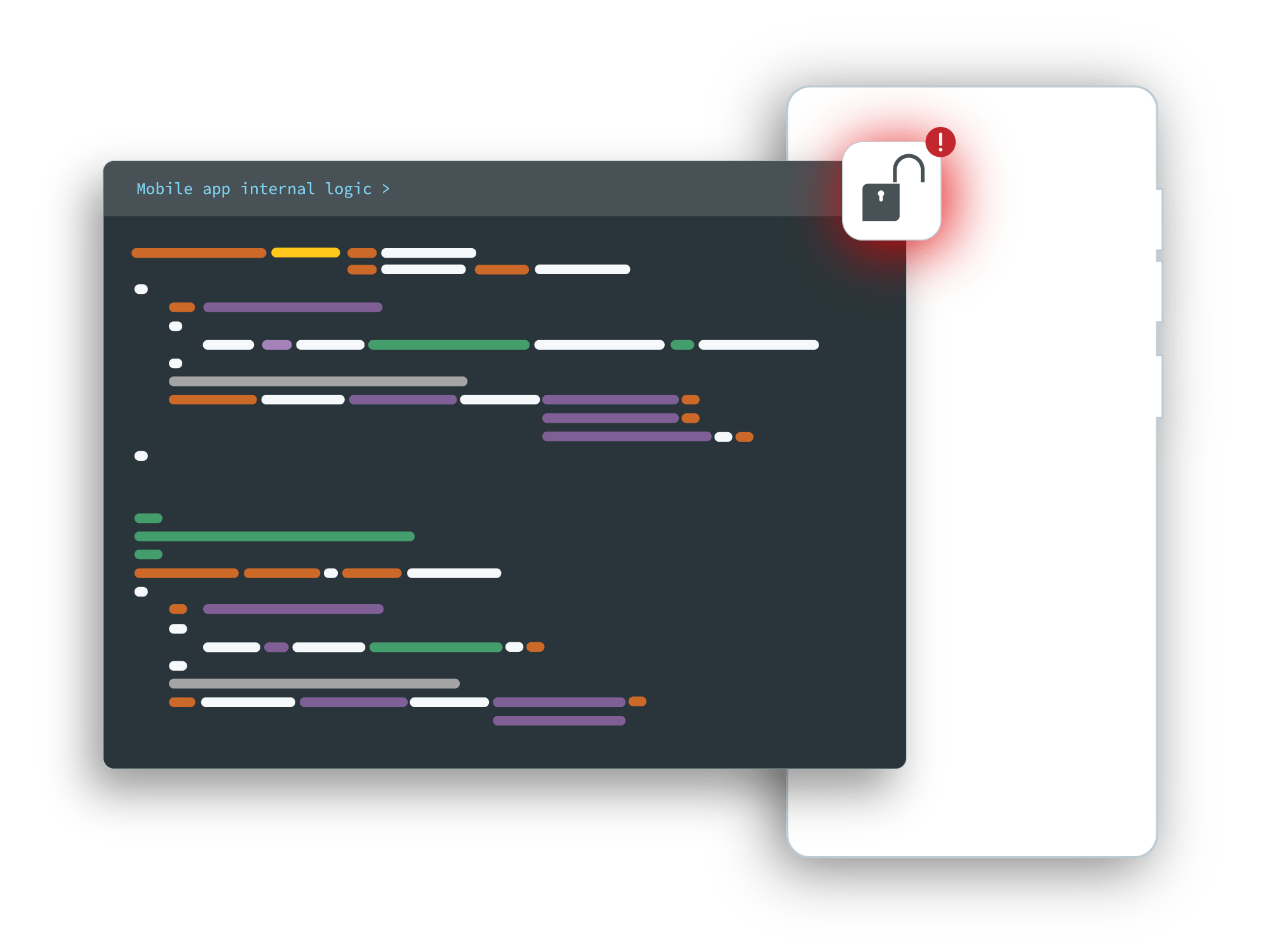
Leveraging Android developer encryption ensures mobile application code, and the data it contains, cannot be accessed while the application is at rest. Android developer encryption does not alter the functionality of the app; the code is decrypted when the application is executed, allowing the app to perform as it should.
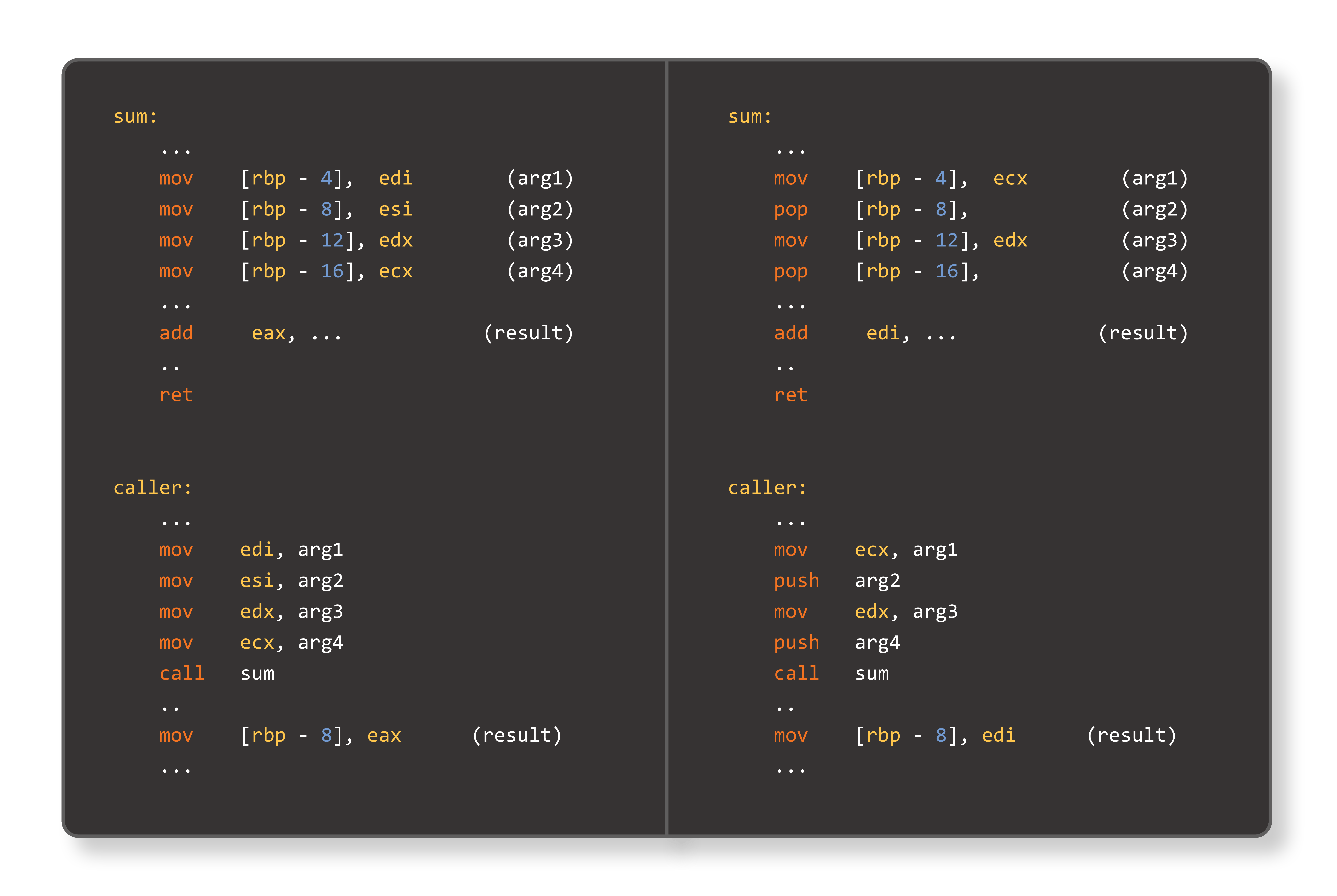
Application developers can utilize Android app obfuscation tools to harden the app’s code at various layers.
This achieves the level of protection necessary to safeguard sensitive data and property while preventing reverse engineering in Android mobile applications.
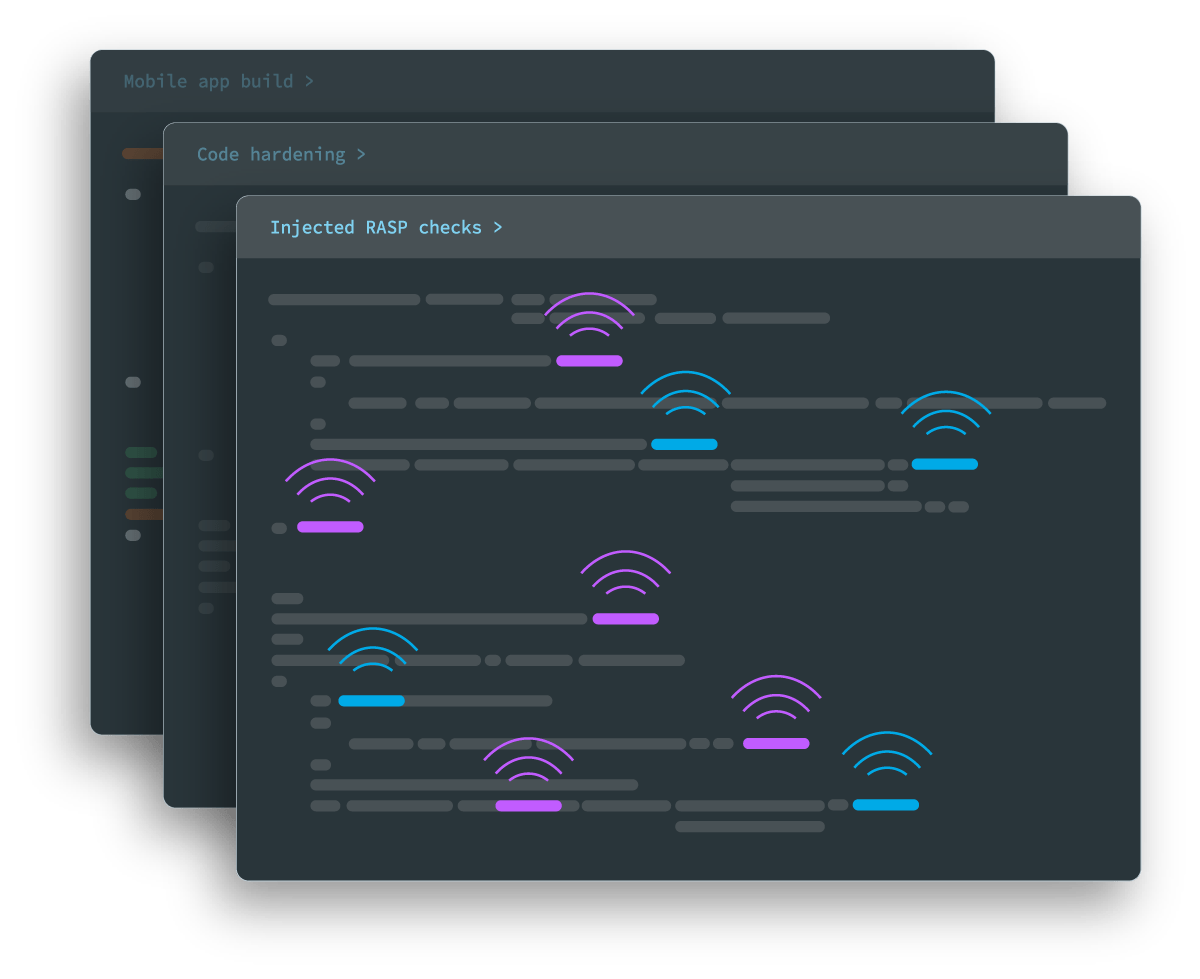
Android runtime application self-protection (RASP) enables apps to monitor for suspicious behavior at runtime.
When a threat is detected, Android RASP implementations respond with pre-programmed actions, like terminating the user’s session, displaying a warning message, or limiting functionality.

Android app code hardening serves as your mobile applications’ frontline defense against reverse engineering and tampering attempts.
Android mobile app code hardening techniques will render your code illegible without affecting its functionality, ensuring that threat actors who attempt to decompile your app won’t be able to
easily interpret its internal logic.

Utilizing Android code optimization helps remove;

Leveraging Android developer encryption ensures mobile application code, and the data it contains, cannot be accessed while the application is at rest. Android developer encryption does not alter the functionality of the app; the code is decrypted when the application is executed, allowing the app to perform as it should.

Application developers can utilize Android app obfuscation tools to harden the app’s code at various layers.
This achieves the level of protection necessary to safeguard sensitive data and property while preventing reverse engineering in Android mobile applications.

Android runtime application self-protection (RASP) enables apps to monitor for suspicious behavior at runtime.
When a threat is detected, Android RASP implementations respond with pre-programmed actions, like terminating the user’s session, displaying a warning message, or limiting functionality.

ANDROID
Learn how Guardsquare’s DexGuard provides the most comprehensive Android app security available to protect your Android apps and SDKs through multiple layers of code hardening and RASP.